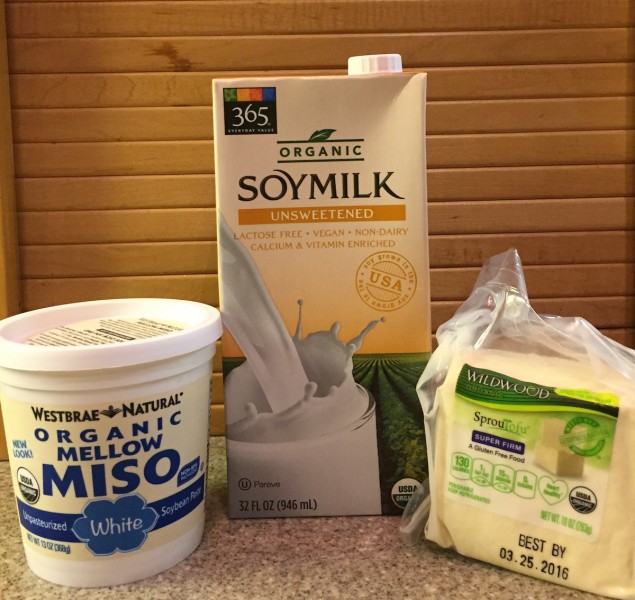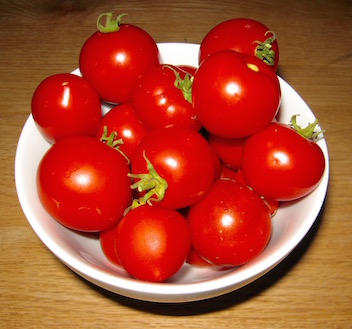
by plant4health | Apr 12, 2016 | benefits of meditation, cancer, Healing, Nutrition, Plant-based
 We all know exercise is important in creating a healthy lifestyle, but did you know that exercise, in combination with a diet rich in whole plant-based foods, is an important component in the healing process?
We all know exercise is important in creating a healthy lifestyle, but did you know that exercise, in combination with a diet rich in whole plant-based foods, is an important component in the healing process?
Our modern way of life tends to breed stagnation. We spend hours everyday hunched over our computers and iPhones or lounging in front of the television. After a long day at work, the mental exhaustion and stress can make it hard to get motivated to go the gym. We’ve all heard about the dangers of a sedentary lifestyle. Our bodies were built for moving.
(more…)

by plant4health | Mar 16, 2016 | cancer, Healing, Nutrition, Plant-based, Vegan, WFPB, Whole food, Whole food, plant-based
 Our bodies have an amazing capacity for self-healing that we simply take granted. According to Dr. Lissa Rankin, physician and founder of the Whole Health Medical Institute, our bodies are equipped with natural self-repair mechanisms that instinctively know how to kill cancer cells, eliminate toxins, fight infections, and remove foreign bodies in order to keep us healthy. It’s when our natural self-repair mechanisms are not provided the support they need to function properly that disease manifests.
Our bodies have an amazing capacity for self-healing that we simply take granted. According to Dr. Lissa Rankin, physician and founder of the Whole Health Medical Institute, our bodies are equipped with natural self-repair mechanisms that instinctively know how to kill cancer cells, eliminate toxins, fight infections, and remove foreign bodies in order to keep us healthy. It’s when our natural self-repair mechanisms are not provided the support they need to function properly that disease manifests.
So, why aren’t we always in perfect health? It turns out that we create our own barriers to self-healing: poor nutrition, lack of sleep/rest, toxic environments (chemical, physical and emotional). Without the proper supports that fuel our cells and nourish our tissues our body’s systems become stressed, forcing them to become overworked and compensate. This causes weak points in our body that become vulnerable to disease and chronic inflammation.
This is why a holistic approach to healing is important. Holistic healing addresses all parts of an individual – physical, mental, emotional, spiritual. It is a way to look at how a person’s life style and environment is impacting their healing process. To truly heal, we need to stop and take notice of our whole experience – how our way of life, behaviors, and feelings are affecting our health. It is when we provide our bodies with the support tools it needs (nutrition, rest, exercise, and emotional support), it can effectively and efficiently do what it does best – keeping us healthy.
We believe that nutrition is a foundational element of perfect health and built www.plant-based4health.com to educate and inspire people to consider a whole food, plant-based diet. We are now excited to expand our focus beyond nutrition to holistic healing. Topic areas will include self-healing, meditation, energy healing, exercise and more. We invite you to check out our new content and would love to hear your ideas and suggestions.

by plant4health | Feb 25, 2016 | cancer, Healing, Plant-based, Recipes, WFPB, Whole food, Whole food, plant-based

Inflammation is the root cause of most diseases (cancer, diabetes, heart disease, stroke, migraines, thyroid issues, asthma, etc.). When we begin experiencing chronic pain, it is easy to forget about the importance of paying attention to our bodies and the role foods play in our health.
When healing inflammation, the number one important thing to remember is that inflammation loves an acidic environment. We create this environment in our bodies by:
- Eating acidic foods (meat, dairy, sugar, wheat, and other acidic foods)
- Experiencing chronic mental stress (fear, resentment, depression, anger, worry, anxiety)
- Suffering from physical stress (bodily injury, surgery, insomnia, physical strain/overuse)
The best way to support your body while experiencing chronic inflammation is to address the above issues and how they affect your life. (more…)

by plant4health | Feb 14, 2016 | cancer, Healing, Nutrition, Whole food, plant-based
I have had several friends tell me that they avoid soy products (edamame, tofu, tempeh, miso, and soy milk) due to the plant estrogens that they fear contribute to hormone-related cancers such as breast, uterine and ovarian in women and prostate in men. However, numerous scientific studies indicate that soy products actually reduce the risk of these cancers and prevent the risk of breast cancer recurrence.
Soybeans contain a class of phytoestrogens or plant estrogens called isoflavones. This plant estrogen does not have the same effect on your body as animal estrogen. According to Dr. Michael Greger in his book “How Not To Die”, “phytoestrogens dock into the same receptors as your own estrogen but have a weaker effect, so they can act to block the effects of your more powerful estrogen.”
Breast cancer: (more…)
![FACT: Our genes DO NOT dictate our health]()
by plant4health | Nov 19, 2015 | cancer, Healing, Nutrition, Organic, Plant-based, Vegan, WFPB, Whole food, Whole food, plant-based
 We’ve all heard it many times, “Breast cancer runs in my family”, “It’s no surprise I have heart disease since my father and his father before him did,” or “Everyone in my family has high blood pressure, so I’m sure I will too.”
We’ve all heard it many times, “Breast cancer runs in my family”, “It’s no surprise I have heart disease since my father and his father before him did,” or “Everyone in my family has high blood pressure, so I’m sure I will too.”
We accept the “diseases of old age” (cancer, cardiovascular disease, high blood pressure, diabetes, arthritis, etc.) as inevitable based on our family history, believing that our genetics predetermines our health.
Thank goodness this belief has been scientifically proven false!
We actually have a significant amount of control over our health as we age – yes, even over our DNA. This news is very empowering!
Our genes do not cause disease. We’ve been taught that our DNA provides a predetermined script of who we are; hair and eye color, shape of our face, height, etc. Thanks to the findings from the Human Genome Experiment (2003), science has identified which genes are associated with specific diseases. From this data, scientists had theorized that if your DNA consisted of a certain gene, then you would develop the disease that gene represents. (more…)

by plant4health | Oct 15, 2015 | cancer, Healing, Nutrition, Organic, Plant-based, Recipes, Vegan, WFPB, Whole food, Whole food, plant-based
 Eating a variety of whole plant-based foods is essential for healing and maintaining excellent health. Science is now discovering that some foods, when eaten together, increase the effects of their individual nutrients, providing even greater health benefits. This is called food synergy. Last month I wrote about lemons. Today, it’s all about tomatoes.
Eating a variety of whole plant-based foods is essential for healing and maintaining excellent health. Science is now discovering that some foods, when eaten together, increase the effects of their individual nutrients, providing even greater health benefits. This is called food synergy. Last month I wrote about lemons. Today, it’s all about tomatoes.
It’s well known that tomatoes are an excellent source of antioxidants: beta-carotene, vitamin E, and vitamin C. But did you know that they are also rich in potassium and a very good source of copper, manganese, dietary fiber, vitamin B6, folate, niacin, and phosphorus? And have you heard that tomato peels contain all four major carotenoids that help protect your body from cancer? When tomatoes are cooked, the lycopene (one of the major carotenoids that lowers the risk of cardiovascular disease and certain cancers) becomes even more bioavailable, increasing the amount your body can absorb.
What’s even more amazing is that when tomatoes are combined with cruciferous vegetables, avocados or olive oil, a synergistic effect occurs that enables your body to more easily absorb and use those powerful anti-cancer and healing nutrients.
Tomatoes and Cruciferous Vegetables – Individually, tomatoes and cruciferous vegetables (broccoli, cauliflower, cabbage, etc.) contain cancer-fighting properties, each food providing distinctive bioactive compounds that fight cancer in different ways. Research has discovered that, when tomatoes and cruciferous vegetables are combined, cancer fighting properties of each are significantly enhanced as the carotenoids in tomatoes increase the bioactive components found in the vegetables. One study at the University of Illinois focused on the synergistic effect of broccoli and tomatoes. They discovered that the tumor-inhibiting effects are significantly enhanced when broccoli and tomatoes are eaten together. It has also been found that chopping and then heating the vegetables makes the cancer fighting compounds even more active. The cutting process breaks the cells and activates an enzyme that initiates a cellular process that results in increased cancer protection. And, as I mentioned in last month’s Lemon Synergy blog, adding a little lemon juice to broccoli increases that enzyme activity. However, be careful of overcooking cruciferous veggies as it results in decreasing their nutrient power. It’s best to steam or sauté lightly.
Try these simple recipes:
Tomatoes and Avocados or Olive Oil – Science has proven that lycopene is fat soluble. As a result, consuming healthy fats with tomatoes increases your body’s absorption rate of the lycopene. According to a study from Ohio State University, when tomatoes are eaten along with avocados or olive oil, the body’s absorption of lycopene is increased up to 15 times. In addition, in 2000, a study in Free Radical Biology and Medicine revealed that, when people consumed tomato products with extra-virgin olive oil versus sunflower oil, researchers discovered that olive oil raised the antioxidant activity of the lycopene in tomatoes. However, consuming sunflower oil produced no effect.
Try these simple recipes:
- Food.com’s Simple Tomato and Avocado Salad
- Add tomatoes and avocado to your salad or use olive oil in your dressings
- Roast or sauté tomatoes with onion and red bell pepper and a little olive oil, garlic, Italian herbs and sea salt. Once cooked, blend in a food processor or blender until the desired consistency then serve over pasta or your favorite grain. Ta da! You’ve got a delicious, high powered nutritious sauce to go with your meal.
Next time you go grocery shopping, don’t forget your tomatoes.

 We all know exercise is important in creating a healthy lifestyle, but did you know that exercise, in combination with a diet rich in whole plant-based foods, is an important component in the healing process?
We all know exercise is important in creating a healthy lifestyle, but did you know that exercise, in combination with a diet rich in whole plant-based foods, is an important component in the healing process?




